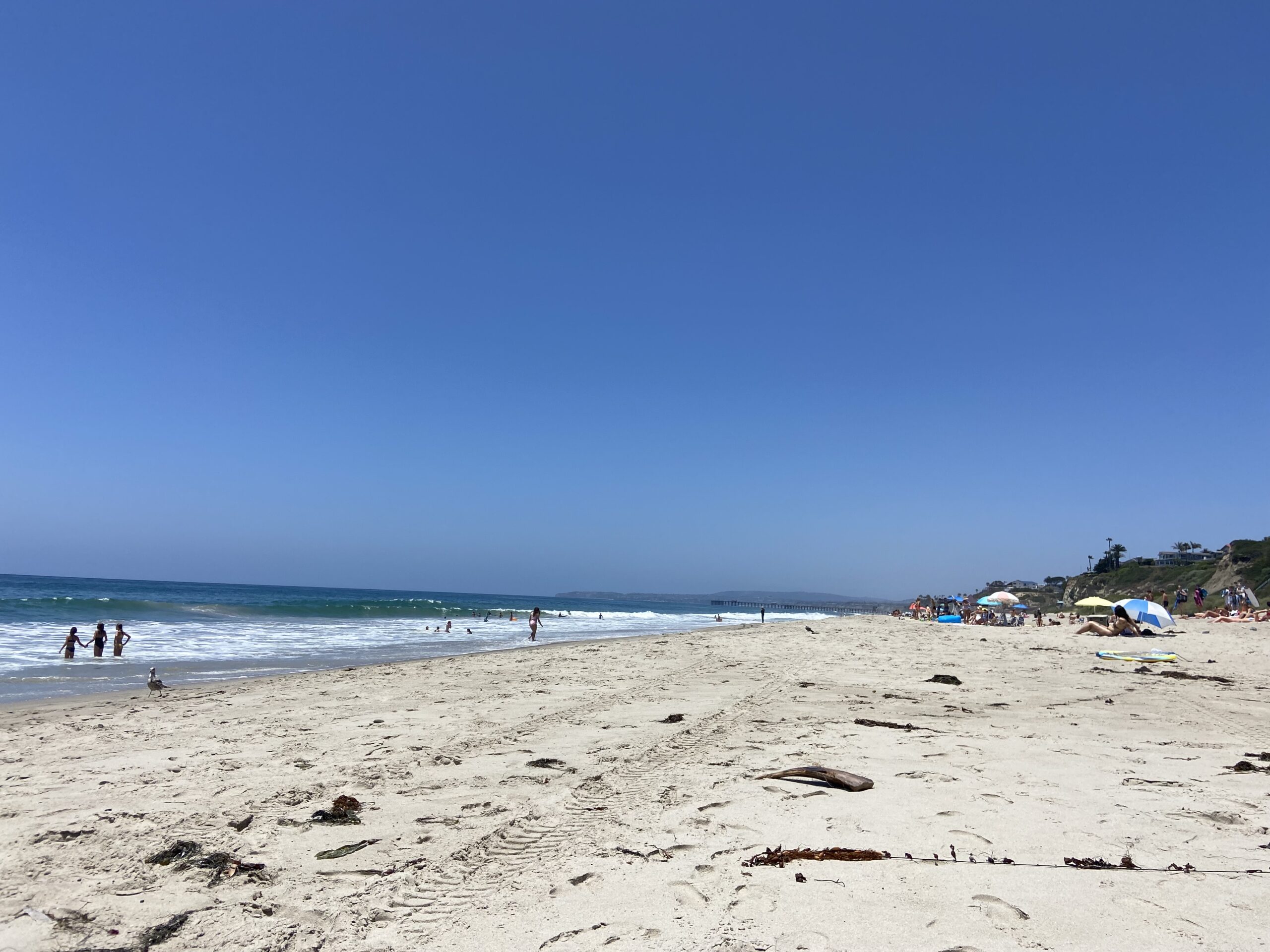More than 50 sea lions have been found stranded on beaches in Southern California in the past week, apparently ill due to food poisoned by a toxic algae bloom. Officials say the bloom filled with domoic acid, a neurotoxin, is highly unusual this time of year.
Five sea lions have died. Of those rescued, all but one are female, and all but two are pregnant.
As domoic acid works its way up the food chain into fish, dolphins, sea lions, other marine mammals, and sea birds, it can cause seizures and aggressive behavior. Affected animals may suffer lethargy, dehydration, vomiting, and sometimes death.
Lifeguards warn to stay away from the animals as they may act erratically and to call authorities (the Pacific Marine Mammal Center: 949-494-3050).
Sick sea lions not yet spotted in San Clemente
The most number of sea lions have been found near Malibu. Others have also been reported in Newport, the Pacific Palisades, Playa Del Rey, Dockweiler Beach, Palos Verdes, Santa Monica and Redondo Beach.
Some officials have questioned if the fire runoff is causing the illness due to its prominence near Malibu, but data collected so far indicates an algae bloom off the coast.
Sickened marine life was found in San Clemente during the last “domoic acid event” in 2023, but not yet this year.

Clarissa Anderson, director of the Southern California Coastal Ocean Observing System told the Orange County Register that they’re seeing very little evidence of the toxin at “shore sampling stations.” That means the mammals would be catching prey further offshore.
Other data collection methods, however, have detected the toxin. “Our satellite model is showing heightened probabilities (of domoic acid) in Southern California from Santa Barbara south,” she added. “So, there’s reason to believe we’re having a domoic acid event.”
She explained that an effective form of research is to do offshore sampling from a vessel. Unfortunately, “recent funding cuts impacting the National Oceanic and Atmospheric Administration are making research like that less likely, she said.”
If you encounter a marine mammal stranded on shore, note the specific location (digitally pin your location on a map if possible), then call or text the Pacific Marine Mammal Center at 949-494-3050.
Read more at the Orange County Register.
